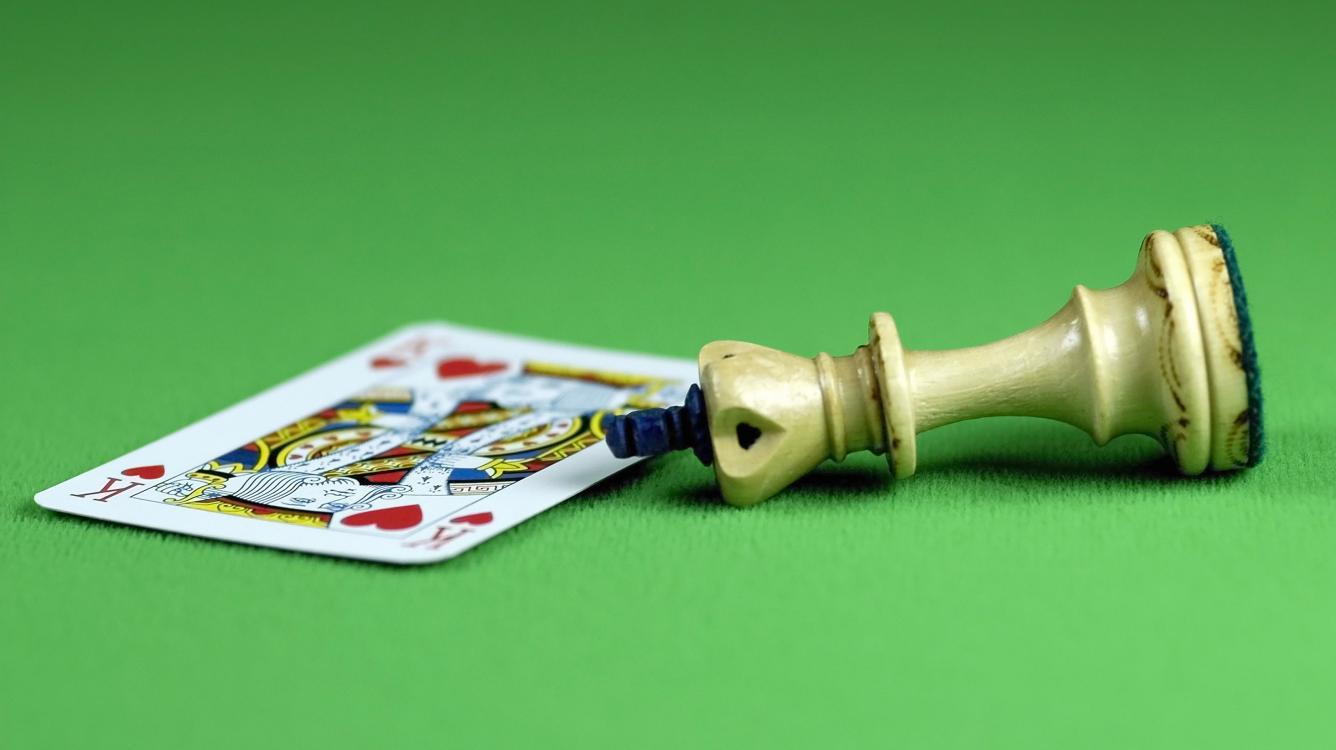
The Intersection Of Poker And Chess
This article was written by Bill Chen, an expert poker and chess player working at Susquehanna International Group (SIG), and is sponsored by SIG in conjunction with their support of the 2021 Bullet Chess Championship.
I am a World Series of Poker bracelet winner, co-author of The Mathematics of Poker, an expert-level chess player, and a quantitative researcher at (SIG), a leading global quantitative trading firm.
At SIG, we enjoy seeking out competition in both poker and chess. Our employees have won many World Series of Poker bracelets, we placed first in the U.S. Amateur Team East Chess Tournament in 2020 over several hundred teams, and we won the recent online North American Corporate Chess League Championship. It’s clear SIG values many of the characteristics that top poker and chess players have.
When I think about the overlap of poker and chess, I see both as intellectual challenges. The top players in the poker world definitely like games and puzzles and to be challenged and push themselves. That’s why they are top players. For me, solving a chess problem over the board or as a study is similar to figuring out why the quantitative trading model I’m running isn’t working or how to make a quick trading decision. Now, I can’t read their minds, but it makes sense to me that many poker players who constantly challenge themselves and succeed in that arena would naturally also take up chess.
In many ways chess and poker are opposites. Chess not only eliminates the element of chance, but it’s also a perfect information game: you see what your opponent sees and there are no hidden hole cards. This means skill dominates more, and it’s harder to get competitive games. I’m rated 2010, which is generally a strong amateur player. Someone rated 2400 should win 90%+ of their games against me.
The minimum requirement to become an international master happens to be a 2400 FIDE rating (there are other requirements like earning 3 norms or performance ratings in strong events). However, GM Hikaru Nakamura should beat a 2400 90%+ of the time. While this hasn’t been tested, there’s some evidence that the top chess computer programs could beat the world champion GM Magnus Carlsen 90%+ of the time.

In poker, it’s true that a rank amateur can go to the cardroom and have a winning night, even if there are world champions at the table. One may even be skeptical of the skills of the most successful players since luck is such a large element of success. However, there is a similarity in the type of analysis and thinking that goes into each play in poker and each move in chess.
If you look at chess games between skilled players, you know what shows up on the board barely scratches the surface. You need the analysis of the variations and often a little theory to understand what is going on. Similarly, in poker, you see what happened with the hands, but you also think about what range of hands you or your opponent would play this way and the overall equity of the play or hand. I used to be frustrated by this sort of thing because as a quantitative analyst, I wanted a way to get some finality in the analysis instead of “it depends.”
Of course, now, there are game-theory optimal solutions (GTO), at least for heads-up poker. I’d like to think of this as an outgrowth of work I started 20 years ago, but of course, many people had known about this before and many innovations have been made to find the solutions. Daniel Negreanu and Doug Polk just had a weeks-long match of heads-up no-limit. Seriously, this is the length a poker match has to be to get to a similar luck/skill ratio as chess. I’m sure we can talk about hundredths of a big blind mistake just as we talk about centi-pawn mistakes in chess.

The analysis and creation of these strategies in poker and chess are what interests me given my line of work, but I think computers have really affected both games. Competitors now try to take as much from the computers as they can into their own game, and I'm sure everyone is much stronger now than they used to be.
So, how do poker and chess intersect? Each game, or hand, is ultimately an exchange of ideas and a battle of styles. Is one an attacking player that goes for the kill, or one that sees a weakness and picks on it until their opponent’s position is untenable?
Want to use your gaming skills in your career? Susquehanna International Group (SIG) is a leading global proprietary trading firm that uses game theory and decision science to win in the financial markets. To learn more about SIG, visit sig.com/chess.




